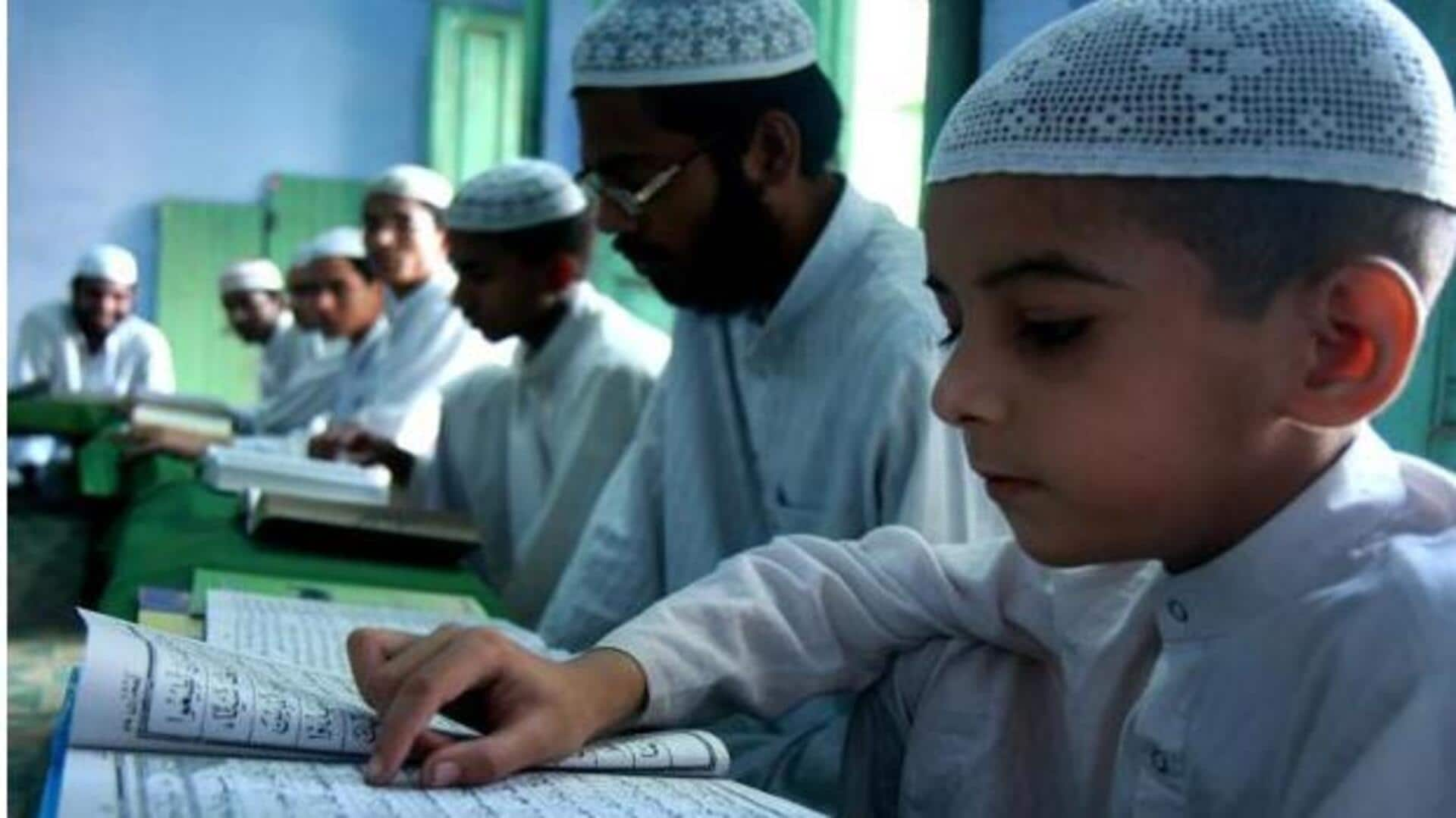'Pakistan-published books': NCPCR chief flags 'radical' curriculum in Bihar madrasas
What's the story
Priyank Kanoongo, the chairperson of the National Commission for Protection of Child Rights (NCPCR), has raised serious concerns about the curriculum being taught in government-funded madrasas in Bihar.
He claimed that certain books used in these institutions, notably "Talimul Islam," label non-Islamic individuals as "Kafirs" (infidels).
Kanoongo also expressed concern over Hindu children attending these madrasas and accused the Bihar government of withholding official data on such enrollments.
UNICEF's role
Kanoongo questions UNICEF's involvement in madrasa curriculum
Kanoongo further questioned the involvement of UNICEF India in preparing the curriculum for these madrasas, describing this as the "height of appeasement" by both the Bihar Madrasa Board and UNICEF.
The NCPCR chief argued that it is not within UNICEF's mandate to create a radical curriculum using funds received as donations and grants from governments, in the name of child protection.
Twitter Post
Check out his post here
बिहार राज्य में सरकारी फ़ंडिंग से चलने वाले मदरसों में तालिमुल इस्लाम व ऐसी ही अन्य किताबें पढ़ाई जा रहीं हैं,इस किताब में ग़ैर इस्लामिकों को काफ़िर बताया गया है।
— प्रियंक कानूनगो Priyank Kanoongo (@KanoongoPriyank) August 18, 2024
इन मदरसों में हिंदू बच्चों को भी दाख़िला दिए जाने की सूचना मिली है परंतु बिहार सरकार संख्या अनुपात की अधिकारिक… pic.twitter.com/vjySGSjxrQ
Legal implications
Kanoongo alleges violation of Indian Constitution, UNCRC
He alleged that this misuse of funds for activities outside the scope of the Right to Education (RTE) Act is a breach of both the Indian Constitution and the United Nations Convention on the Rights of the Child (UNCRC).
He has called for an investigation into these allegations by the United Nations in India.
The NCPCR chief alleged that many books included in this curriculum are published in Pakistan and called for the dissolution of Madrasa Board.
